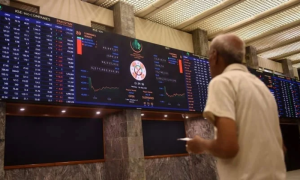BEIRUT: A second wave of walkie-talkie device explosions killed at least 14 people and injured more than 450 in Hezbollah strongholds of Lebanon on Wednesday, officials said, stoking fears of an all-out regional war.
The blasts occurred during a funeral for Hezbollah members in south Beirut. Eyewitness footage showed panic as attendees fled for safety when the explosions erupted.
A source close to Hezbollah said walkie-talkies used by the Lebanese group members exploded in its Beirut stronghold, with state media reporting similar explosions in south and east Lebanon.
Initial reports indicate that the devices exploded simultaneously in various locations, including areas in south and east Lebanon. Lebanese authorities stated that the health ministry classified the devices involved as walkie-talkies.
The latest explosions followed a series of pager blasts the previous day, where the simultaneous detonation of hundreds of Hezbollah paging devices resulted in 12 deaths, including two children, and injured nearly 2,800 others.
Those blasts have been attributed to Israeli actions, which have heightened tensions as Israel expands its military focus from Hamas in Gaza to include Hezbollah.
Hezbollah has accused Israel of orchestrating the attacks, with a spokesperson declaring that the group holds Israel “fully responsible for this criminal aggression” and pledging revenge.
Cross-border exchanges with Israeli forces were “ongoing and separate from the difficult reckoning that the criminal enemy must await for its massacre,” Hezbollah said.
READ ALSO: Beijing Sanctions 9 US Defence Companies in Response to Taiwan Sales
The situation has drawn international attention, with Lebanese Foreign Minister Abdallah Bou Habib describing the explosions as a “blatant assault on Lebanon’s sovereignty and security,” suggesting they could herald a broader conflict.
Hospitals in Hezbollah-controlled areas have been overwhelmed by the influx of casualties. Dr. Joelle Khadra, working at a Beirut hospital, described the injuries as severe, noting “finger amputations” and “shrapnel in the eyes,” with some victims facing permanent vision loss. Another doctor said that he had never seen injuries of such magnitude.
Experts believe that Israeli operatives may have tampered with the devices prior to their delivery to Hezbollah. Charles Lister, a senior analyst at the Middle East Institute, said that small plastic explosives were likely concealed within the devices, suggesting a sophisticated infiltration by Israel’s Mossad into the supply chain used by Hezbollah.
Among the deceased was a 10-year-old girl, the daughter of a Hezbollah member, who was killed when her father’s pager exploded in the Bekaa Valley. Iran’s ambassador to Beirut, Mojataba Amani, who was injured in the blasts, expressed solidarity with the Lebanese victims on social media, labeling the attacks a “horrific terrorist crime.”
Iranian President Masoud Pezeshkian condemned the bombings, criticizing Western support for Israeli actions. The recent attacks have dealt a significant blow to Hezbollah, which is already grappling with security challenges following the loss of key commanders due to Israeli air strikes in recent months.
The Lebanese health ministry reported the pagers had been “recently imported,” raising suspicions of sabotage. A Taiwanese manufacturer of the devices stated that they were produced by a Hungarian partner, though officials there clarified that the company was merely an intermediary without manufacturing capabilities.
Meanwhile, major airlines such as Lufthansa and Air France have suspended flights to Tel Aviv, Tehran, and Beirut through Thursday.
UN rights chief Volker Turk labeled the recent attacks as occurring at an “extremely volatile time,” calling the civilian impact “unacceptable.” UN Secretary-General Antonio Guterres urged governments “not to weaponize civilian objects”.
US officials have expressed increasing frustration with Israel, which has rejected American assessments that a deal is nearly complete and insisted on an Israeli military presence on the Egypt-Gaza border.
Since October 7, Israel has launched a relentless bombardment campaign in Gaza killing at least 41,272 Palestinians, mostly women and children, according to data provided by the territory’s health ministry. The UN has acknowledged these figures as reliable.
In Gaza on Wednesday, the civil defence agency said an Israeli air strike on a school-turned-shelter killed five people.

























